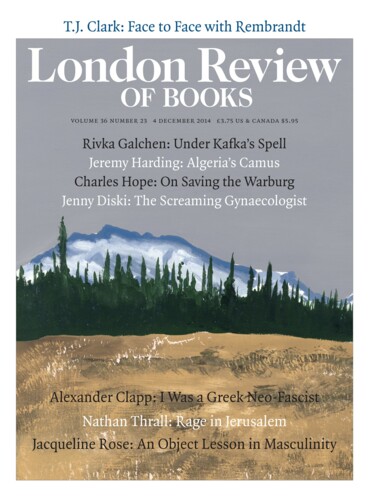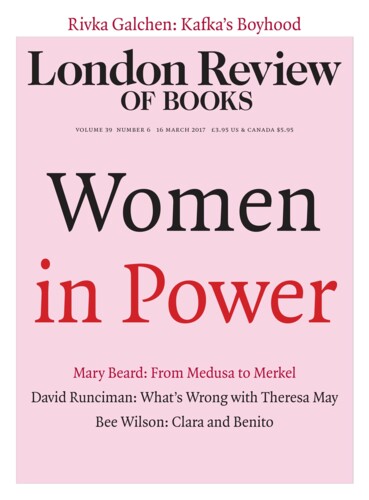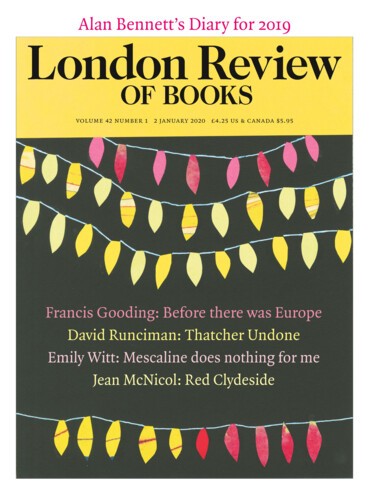What kind of funny is he? Under Kafka’s Spell
Rivka Galchen, 4 December 2014
I have come to the conclusion that anyone who thinks about Kafka for long enough inevitably develops a few singular, unassimilable and slightly silly convictions. My own such amateur conviction is that the life of Franz Kafka reads like a truly great comedy. I mean this in large part because of the tragedies in and around his life, and I mean it in the tradition of comedies like the final episode of Richard Curtis and Rowan Atkinson’s Blackadder, which, after episode upon episode of darlings and foilings and cross-dressings, ends in 1917 with our not exactly heroes climbing out of their trench and running towards the enemy lines.





